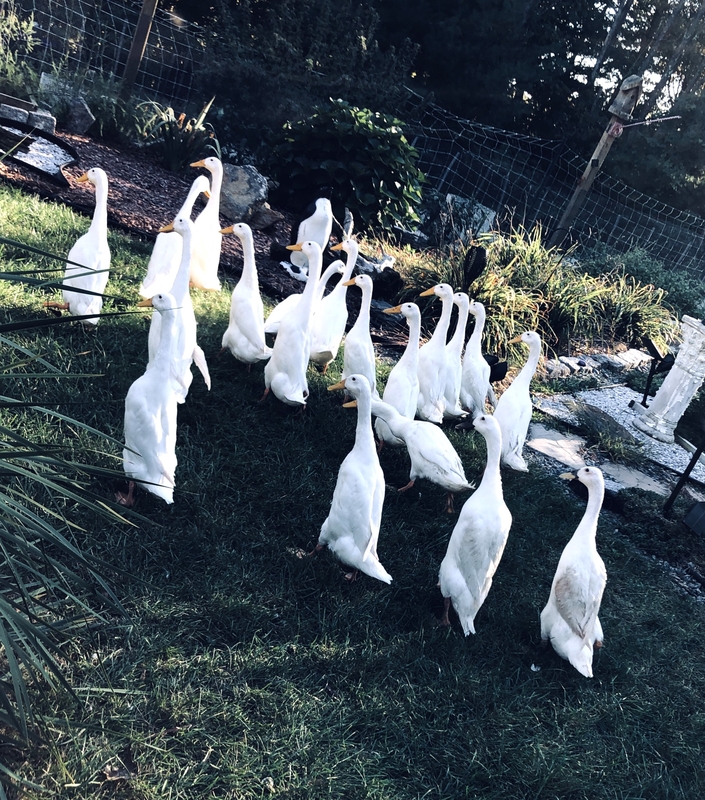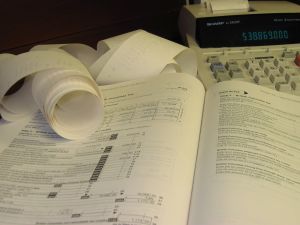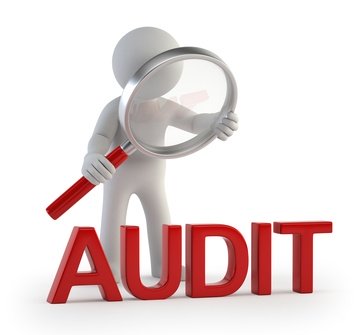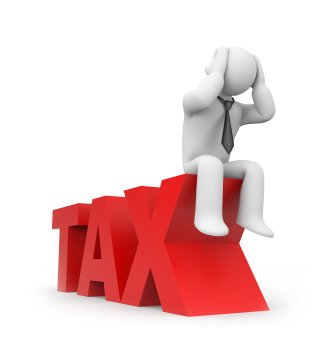- Canadian Bookkeeping Compliance Resource
- Basics of PST in BC
- Provincial Sales Tax Rates in BC
Guide to Provincial Sales Tax Rates in BC
By L.Kenway BComm CPB Retired
Revised April 10, 2024 | Originally Published on Bookkeeping-Essentials.com in March 2013
WHAT'S IN THIS ARTICLE
Introduction | Current Rates | Exemptions | Calculating PST | Invoicing Requirements | Apply for a Refund | Interprovincial Rate Comparison | Reporting & Remitting | PST & WCB Deadlines | Penalties | Imports & Exports | Online Sales | PST vs GST HST | Wrap-up
NEXT IN PST SERIES >> Basics of PST in BC
OVERVIEW
In April 2013, PST rates in BC returned to pre-July 1, 2010 rates with some tinkering from modernizing the tax administration system.
One important change from the transition is that PST is no longer just one set rate. Rates now vary between 7% and 12%.
 It can be tough getting all your ducks in a row especially when dealing with provincial sales tax rates in BC.
It can be tough getting all your ducks in a row especially when dealing with provincial sales tax rates in BC.Introduction to Provincial Sales Tax Rates in BC
The world of taxation can often seem complex and daunting for business owners. This is especially true when it comes to navigating Provincial Sales Tax rates in BC. This article aims to unravel the intricacies of British Columbia's Provincial Sales Tax (PST) system, providing insight into their various rates to applicable exemptions.
Current Provincial Sales Tax Rates in BC
One important change when BC switched back to PST in 2013 was that PST was no longer just one set rate. The Government took the opportunity to introduce more than one rate. These rates can vary between 7% and 12%. The general rate is 7%. But vehicles, boats, aircraft, alcohol, accommodation attract a different rate.
These are the BC PST rates as February 22, 2022. They apply to new and used products, selective services whether purchased or leased in BC. PST also applies to goods purchased and brought back to BC (see Bulletin 310). However, it's critical for businesses to stay updated with the Ministry of Finance's announcements, as the government modifies the PST Bulletins regularly.
PST is applied to the purchase price before GST is calculated. For clarity, PST is not charged on GST.
*The PST rate is 7% for:
- freestanding appliances, freestanding furniture and draperies purchased with a manufactured mobile home, manufactured modular home or portable building, and
- repair parts purchased for a manufactured mobile home, manufactured modular home or portable building.
This means the reduced PST rates for manufactured mobile homes, manufactured modular homes and portable buildings do not apply to these items.
Source: Bulletin PST 310
Provincial Sales Tax Rates In BC
Passenger Vehicles - Non ZEV (Zero Emission Vehicle) And ZEV [As Of February 22, 2022]
| Vehicle Purchase Price | Private Sale & Gifted | Leased or Purchased From GST registrant |
Reference |
|---|---|---|---|
| Non-ZEV Passenger Vehicles Less Than $55,000 | 12% | 7% | PST Bulletin 308 |
| Non-ZEV Passenger Vehicles $55,000-$55,999 | 12% | 8% | PST Bulletin 308 |
| Non-ZEV Passenger Vehicles $56,000-$56,999 | 12% | 9% | PST Bulletin 308 |
| Non-ZEV Passenger Vehicles $57,000 - $124,999 | 12% | 10% | PST Bulletin 308 |
| Non-ZEV Passenger Vehicles $125,000-$149,999 | 15% | 15% | PST Bulletin 308 |
| Non-ZEV Passenger Vehicles $150,000 plus | 20% | 20% | PST Bulletin 308 |
| ZEV Passenger Vehicles Less Than $75,000 | 12% | 7% | PST Bulletin 308 |
| ZEV Passenger Vehicles $75,000-$75,999 | 12% | 8% | PST Bulletin 308 |
| ZEV Passenger Vehicles $76,000-$76,999 | 12% | 9% | PST Bulletin 308 |
| ZEV Passenger Vehicles $77,000 - $124,999 | 12% | 10% | PST Bulletin 308 |
| ZEV Passenger Vehicles $125,000-$149,999 | 15% | 15% | PST Bulletin 308 |
| ZEV Passenger Vehicles $150,000 plus | 20% | 20% | PST Bulletin 308 |
Provincial Sales Tax Rates In BC
Non-Passenger Vehicles
PST rates for non-ZEV non-passenger vehicles
- For non-ZEV non-passenger vehicles purchased at a private sale or received as a taxable gift, the PST rate is 12% of the purchase price.
- For non-ZEV non-passenger vehicles that were leased, imported into Canada or purchased (or received as a gift) from a GST registrant, the PST rate is 7% of the purchase price.
PST rates for ZEV non-passenger vehicles
- For ZEV non-passenger vehicles purchased at a private sale or received as a taxable gift, the PST rate is 12% of the purchase price.For ZEV non-passenger vehicles that were leased, imported into Canada or purchased (or received as a gift) from a GST registrant, the PST rate is 7% of the purchase price.
Source: ICBC
Provincial Sales Tax Rates In BC
Other Vehicle / Fuel Types
| Items | Other Tax Rates | Reference |
|---|---|---|
| Passenger Vehicle Rental Tax (PVRT) | $1.50 for each day (i.e. 24-hour period), or portion of a day | PST Bulletin PST 118 |
| Multijurisdictional Vehicle Tax (MJVT) | Applies to inter-jurisdictional commercial carriers. It uses a formula: MJV tax = taxable value* x tax rate** x travel ratio x travel months | PSTBulletin 135 |
| Innovative Clean Energy Fund (ICE) | 0.4% on energy products excluding electricity | PST Bulletin 203 |
| Propane purchasers | 2.7 cents per litre | MFT Bulletin 014 |
*MJVT taxable value of a vehicle is as follows:
- If the vehicle is purchased for fair market value, the purchase price of the vehicle.
- If the vehicle is acquired for less than fair market value, the fair market value of the vehicle on the date the vehicle is purchased or received as a gift.
- If the vehicle is leased, the greater of the purchase price of the vehicle, as described in the lease, and the fair market value of the vehicle on the date the vehicle first becomes accessible by the lessee.The taxable value includes any capital expenditures made to the vehicle within 30 days after the vehicle’s acquisition date (for example, the addition of a crane).
** You need to read Bulletin PST 135 for the MJVT tax rate as it varies.
Exemptions from PST
Not all goods and services are subject to PST in BC. Permanent exemptions may include children's clothing, restaurant meals, basic groceries, bicycles, books, newspapers, magazines, and some types of machinery.
These common items are PST exempt but may attract GST:
- Transportation Fares - Public transportation will be exempt for PST purposes which includes BC Transit, Translink buses, Skytrain, Seabus, or BC Ferries. There is no GST on public transportation as it is exempt.
- Parking - It does not attract PST but does attract GST now that we have returned to PST + GST. The GST is usually included in the posted parking rate. For those in the metro Vancouver, there is also a Translink parking tax but this is not the same as federal or provincial sales tax.
- Taxis - are also PST exempt so only GST applies.
- Basic cable and residential phone line will be PST exempt, only GST applies. Speciality channels or long distance calls are not PST exempt. They attract PST + GST.
- Insurance premiums, strata fees, rent, mortgage payments, purchase of previously occupied residential housing are all PST + GST exempt.
- Professional services - Most professional services such as bookkeeping and accounting fees are also be exempt, attracting only GST. Legal services are the exception. They attract both GST + PST.
- Hotel rooms - see the following table for the effect of reimplementing PST. It should be noted that the 8% hotel room tax is no longer a separate tax. It has now been incorporated into the PST Act. However, there continues to be a 3% (2% prior to 2015) municipal / regional district HRT (hotel room tax) in some communities. It is accounted for and reported separately from your 8% PST accommodation tax.
- Airfares - see the following table for the effect of reimplementing PST vs HST:
| From BC To: | Before July 1, 2010 | After June 30, 2010 | After March 31, 2013 |
|---|---|---|---|
| Anywhere in Canada | 5% | 12% | 5% |
| Continental USA | 5% | 5% | 5% |
| International | 0% | 0% | 0% |
Bulletin PST 301 Related Services contains a long list of exempt services and customers that you should become familiar with if you are a BC bookkeeper.
Certain entities like First Nations individuals or government bodies may also be exempt from paying PST. Detailed guidelines and criteria for exemptions are provided on the BC government's website.
For example, Bulletin PST 301 says, "related services purchased by a First Nations individual or a band are exempt from PST if the related services are provided wholly on First Nations land. The exemption does not extend to tribal councils, band empowered entities, corporations or cooperatives." See Bulletin PST 314 for more information.
MORE >> Certificate Of Exemption Links
MORE >> Exemptions Specific to Business
MORE >> Real Property Contractors
GST HST Comparison
In comparison, certain exemptions are part of the GST/HST structure. Basic groceries, prescriptions drugs, residential rent and condo fees, used residential housing, most health, dental, and educational services are GST HST exempt.
Calculating and Adding PST
 Calculating provincial sales tax rates in BC
Calculating provincial sales tax rates in BCI Purchasing Goods In BC
Adding PST to the price of an item or service is straightforward — just calculate 7% of the purchase price.
For instance, if an item costs $200, the PST would be $14 ($200 x .07), thereby making the total cost $214. Keep in mind that GST may apply and would need to be calculated in addition to PST if necessary.
II. Bringing Goods Into BC
Bulletin PST 310 explains that if you are bringing goods into BC PST is paid on the following formula. If the seller does not collect the PST due, you must self-assess (pay directly to us) the PST.
PST due = (PST rate x depreciated purchase price) – BC tax previously paid
where the depreciated purchase price of taxable goods is the greater of the depreciated value* or 50% of the purchase price.
* The depreciated value is determined on a straight-line basis as follows. See the bulletin for prescribed depreciation rates.
Depreciated value = Purchase price - [purchase price x depreciation rate]
Example - laptop brought into BC by a Business
I am presenting the Bulletin PST 310's example of a laptop brought into BC by a Business found on page 7 of the bulletin. The bulletin also has an example of furniture sent into BC by a BC Resident.
A business purchased a laptop in Ontario for $2,000 on February 12, 2018. To pay for the laptop, the business paid $1,500 in cash and also traded in a computer for a $500 trade-in credit against the purchase. The business paid Ontario HST on the entire $2,000. The business initially used the laptop in Ontario, but later decided to send the laptop into BC for use in BC. The entry date for the laptop was February 16, 2019.
PST applies as follows:
- PST due = (PST rate x depreciated purchase price) – BC tax previously paid
The depreciated purchase price is the greater of the depreciated value and 50% of the purchase price. The depreciated value is calculated as follows:
- Depreciated value = Purchase price – [purchase price x depreciation rate]
The purchase price is $2,000 because the purchase price is the total amount paid to purchase goods before a deduction for a trade-in.
- Depreciated value = $2,000 – [$2,000 x depreciation rate]
The depreciation rate is calculated as follows:
- February 12, 2018 to February 11, 2019 is one whole year
- February 12, 2019 to February 16, 2019 is 5 days
- The number of 30-day periods is 5 ÷ 30 = 0.1667 rounded down to 0
- The depreciation rate is (1 x 20%) = 20%
- Depreciated value = $2,000 – [$2,000 x 20%] = $1,600
The depreciated purchase price is the greater of $1,600 and 50% of the purchase price ($1,000). Therefore, the depreciated purchase price is $1,600.
- PST due = (7% x $1600) – 0
Note: The business does not receive a reduction for the Ontario HST they paid on the goods because Ontario HST is not a “BC tax previously paid.”
- PST due = $112
If the business has a PST number, they must self-assess the PST due on their next return. If they do not have a PST number, the PST is due by March 31, 2019.
How To Calculate GST/PST Included In A Purchase Amount
Let me show you how to find the GST/PST paid in a transaction if it itemized on a receipt (even though you are required to itemize PST separately on a receipt).
Let's say you purchased an item that cost $224.00 including sales tax. Sales tax in British Columbia is 5% GST and 7% PST.
You want to know how much of that $224.00 is sales tax. Here's how you do it.
Step 1: Calculate purchase price
$224.00 (total purchase amount) / 1.12 = $200.00 (purchase price excluding sales tax) where / means divide.
Step 2: Calculate GST and PST paid
$200.00 x .05 = $10.00 (amount of GST paid) where x means multiply.
$200.00 x .07 = $14.00 (amount of PST paid) where x means multiply.
Total sales tax paid = $24.00
To test your calculation, $200 x .12 = $24.00; $200 + 24 = $224.00

PST Invoicing Requirements
If you are wondering what the invoicing requirements are regarding the PST rates, remember your invoice MUST list the PST and GST seperately. It cannot be combined into one rate.
PST agreements, receipt, invoice requirements are:
- you must provide a receipt
- you must show the tax as a separate item
- you do NOT show your PST registration number (but it's a good idea to show your GST Registration Number even if not required)
MORE >> Exemptions Invoicing Requirements
How to Apply for a PST Refund
Businesses may be eligible for a PST refund in specific instances, such as overpayment or pay on goods that are later returned. Applications for general refunds (Form FIN 355) must be submitted to the BC Ministry of Finance, accompanied by all relevant receipts and documentation.
The website says it can take 6 months or more to process refunds due to the heavy volume of refund applications.
WHO CAN APPLY?
Only the person who paid (the name on the invoice) can request a refund. If no name shows on the document, then the holder of the payment information shown on the documentation will be the person who paid the tax. Your application will be rejected if the incorrect person or business applies for the refund.
TIME LIMITS
You have four years from the date you paid the PST to apply for a refund.
Reference: BC Refunds for PST has links to refund applications for specific circumstances such as vehicles, special event permits, production machinery and equipment, multijurisdictional vehicles, farmers, aquaculturists, fishers, fossil fuel combustion system, heat pump, PAC-funded purchases, charity-funded purchases of medical equipment.
Comparing BC's PST Rates with Other Provinces
PST rate varies across Canada. As of April 2024, here's how rates across Canada compare to BC general rate PST:
BC’s rate is moderate compared to other provinces that charge.
Federal non-participating provinces: Saskatchewan, for example, has a 6% PST rate while Manitoba has an 7% RST rate, and QST is 9.975% in Quebec. Alberta and the territories do not have PST.
Federal participating provinces: The provincial portion of HST in the Atlantic provinces is 10% and 8% in Ontario.
Online Reporting and Remitting PST
Businesses must report and remit PST through eTaxBC, an online service. It is a free service portal.
eTaxBC allows businesses and individuals to manage their provincial taxes and levies online, including sales taxes, municipal and regional district taxes, and various natural resource taxes. Functions include registering for a new account, filing tax returns, making payments, checking account balances, and updating account information, all in a secure online environment.
Your bookkeeper or accountant can also use eTaxBC to file your returns on your behalf.
Depending on your reported revenue, you may remit annually, semi-annually, or monthly. See the table below.


British Columbia Tax Compliance Deadlines
This deadline table will be updated regularly. Last update April 8, 2024.
| Tax Collected | Reporting Period |
|---|---|
| More than $12,000 | Monthly only |
| $6,000 - $12,000 | Monthly or Quarterly |
| $3,000 - $6,000 | Quarterly or Semi-annual |
| $3,000 or less | Quarterly, semi-annual or annual |
| Tax Type | Reporting Period | Form to be Filed | Tax Filing Deadline | Payment Deadline |
|---|---|---|---|---|
| Monthly PST Return | Prior month | eTaxBC | Last day of month following | Last day of month following |
| Quarterly PST Return | Oct-Dec Jan-Mar Apr-Jun Jul-Sep |
eTaxBC | Jan 31 Apr 30 Jul 31 Oct 31 |
Jan 31 Apr 30 Jul 31 Oct 31 |
| Semi-Annual PST Return | Jan-Jun Jul-Dec |
eTaxBC | Last day of month following | Last day of month following |
| Annual PST Return | Prior year | eTaxBC | January 31 following | January 31 following |
| BACKWORK REMINDER April 1, 2013 |
BC HST Transitions Back To PST | |||
| BACKWORK REMINDER April 1, 2012 |
BC HST-PST Transitional Rules Relating To New Home Sales Began |
|||
| BACKWORK REMINDER May 1, 2010 |
BC (& Ontario) PST-HST Transitional Rules Began |
|||
| WorkSafeBC | ||||
| WCB Annual Report | Jan-Dec 2023 | Employer Payroll and Contract Labour Report 1810 |
early Mar 2024 | early Mar 2024 |
| WCB Quarterly Filer | Oct-Dec Jan-Mar Apr-Jun Jul-Sep |
Employer's Remittance Form 1820 | Jan 20 Apr 20 Jul 20 Oct 20 |
Jan 20 Apr 20 Jul 20 Oct 20 |
You should receive your base rate and classification unit letter from WCB for 2024 in January. If you haven't received it by the end of January, contact WCB or go online.
Penalties for Non-compliance
Failure to properly comply with PST regulations (Bulletin CTB 005) can result in penalties, and interest charges.
INTEREST
Interest is assessed at "3% above the prime lending rate of the principal banker to the Province on the 15th day of the month immediately preceding that 3 month period". I could only find rates listed to September 30, 2014!
PENALTIES
Per BC Ministry of Finance Bulletin CTB 005 Penalties and Interest, "Generally, we will not apply a penalty on an assessment if you have not previously been assessed for the same error, or there is no indication you knew of the liability. ... We will generally apply a 10% penalty on first assessments if the facts indicate you were aware of the obligation but did not charge, collect, pay or remit the correct amount as required. We will also generally apply a 10% penalty to all assessments if you were previously advised of an error (e.g. failing to charge, collect, pay or remit as required) and you make the same error again. In addition, if you were previously directly advised of how tax or security applies to a particular situation and you make an error in applying tax or security in that same situation, we will apply a 10% penalty."
It gets worse. Wilful evasion or fraud is a 25% penalty and a 100% penalty if tax was collected in trust but wilfully not remitted or security was willfully not paid to the Province. Good news seems to be they don't send you to jail like the Federal Government does.
Penalties are also applied if you wilfully fail to register for PST or do not remit electronically when required.
Impact of PST on Imported or Exported Goods
Generally, goods imported into BC are subject to PST, though certain exceptions may apply. Goods exported from BC to another country, however, are generally exempt from PST.
Businesses located outside British Columbia (BC) that sell taxable goods or provide software or telecommunication services may need to register for, collect, and remit Provincial Sales Tax (PST) if these are provided in BC. The regulations for these are defined under the British Columbia's Provincial Sales Tax Act (PSTA).
Non-Resident Businesses Bulletin PST 001 & 309 & 321:
Businesses must pay PST when they bring or send goods into B.C., or receive delivery of goods in B.C., for use in the course of their business, whether or not their business is carried on in B.C.
If a business is selling goods, software, or telecommunication services to BC customers from outside the province, it is liable to register, collect, and remit PST. This is applicable regardless of whether the product is delivered physically or digitally.
If your business is located outside B.C. and regularly do all the conditions in any of the following scenarios, you must register to collect and remit PST.
- Sell or lease taxable goods, software, or services to customers in BC;
- Accept purchase orders from customers in BC;
- Deliver taxable goods (physically shipped) or software (electronically delivered) to a location in BC directly or through a third party;
- Solicit sales in BC for goods or software;
- Meet the minimum threshold of a small seller*.
*Small sellers category provides an exception. If the total amount derived from all retail sales by the seller in the previous 12 months in BC is less than $10,000, and is expected to remain less than $10,000 in the next 12 months, then the business is not required to register, collect, or remit PST. It's nevertheless permitted to do so voluntarily. I could not find if the restriction for the business to be home based to qualify as small seller applied to businesses outside BC.
There are three main categories of businesses that are obligated under the BC PSTA:
1. Sell Taxable Goods to Customers in BC Bulletin PST 001:
There is a lengthy list of examples in Bulletin PST 321 of businesses that may have to register to collect and remit PST in BC. It includes real property contractors (Bulletin PST 501) and software companies (Bulletin PST 105).
Exceptions:
- Wholesalers and small sellers are not required to register.
- Sell only non-taxable or exempt software, goods, or services such as children's clothing, dry-cleaning services, or transportation services are not required to register.
- Independent sales contractors only selling exclusive products are not required to register.
2. Online Marketplace Facilitators and Sellers Bulletin PST 142:
Operators that facilitate retail sales through their platform must register, collect, and remit PST on taxable sales made by sellers to customers in BC. It may include software and telecommunication services that are used in BC.
3. Telecommunication Services Bulletin PST 107:
BC PST categorizes telecommunication services as not only traditional telephone services, but also any service allowing voice, image, or data transmission. This can include the right to download, view or access such as internet access, text messaging, digital streaming or downloading of online yoga classes, audio books, ring tone, music, and audio programs such as podcasts or radio, TV programs or movies, online gaming services, cloud-based software, and more.
These services can be taxable regardless of their method of delivery, the type of signal used, or the type of contract (prepaid, postpaid, pay as you go, etc.).
Certain exemptions may apply, including some specific types of broadcasts, internet access, and sales to certain groups such as Canada's federal government.
Requirements for Registration, Collection and Remittance of BC PST
Businesses in these qualifying categories must register by applying for a PST number, typically through BC's eTaxBC online service.
Once you have a PST number, your business is required to charge PST on all relevant goods and services at the point of sale unless an exemption applies. Currently, the PST rate in BC is 7%, although there are different rates for certain types of goods and services.
PST should be collected and recorded at the transaction level at the time of the sale. The collected PST must be remitted to the BC government on specific due dates, which could be monthly, quarterly, semi-annual, or annually depending on the annual threshold level of the collected PST.
Failure to comply with these requirements could potentially result in penalties, so it's important to understand your obligations. To ensure compliance with all PST rules and regulations, consider consulting with a tax professional or accountant familiar with BC's PST regime.
Online Sales and PST
Online businesses that sell or deliver goods and services in BC are required to register, collect, and remit PST. This includes businesses not located in BC, provided they have a significant nexus (connection) with the province.
AUDIT READY
See the previous section for information on online marketplace facilitators and telecommunication service providers. BC's definition is broader than most other sales tax jurisdictions in Canada. It is knowledge you must be aware of if your electronics goods or services allow the right to download, view or access content online.
Differentiating Between PST, GST, and HST
GST is a federal tax of 5% applied to most goods and services sold in Canada, while PST is a provincial tax unique to several provinces, including BC.
HST, on the other hand, is a harmonized blend of GST and PST applied in certain provinces, but not in BC.
MORE >> How GST and HST are different from PST
Wrap-up
By fully grasping these elements, small business owners can navigate British Columbia's PST landscape with confidence, ensuring accurate calculation, collection, and remission of these funds held in trust. It also helps businesses avoid unnecessary penalties while taking advantage of eligible exemptions and refunds.
References: BC's publication Small Business Guide to PST and numerous PST Bulletins are quoted and referenced throughout the article.
- Canadian Bookkeeping Compliance Resource
- Basics of PST in BC
- Provincial Sales Tax Rates in BC








